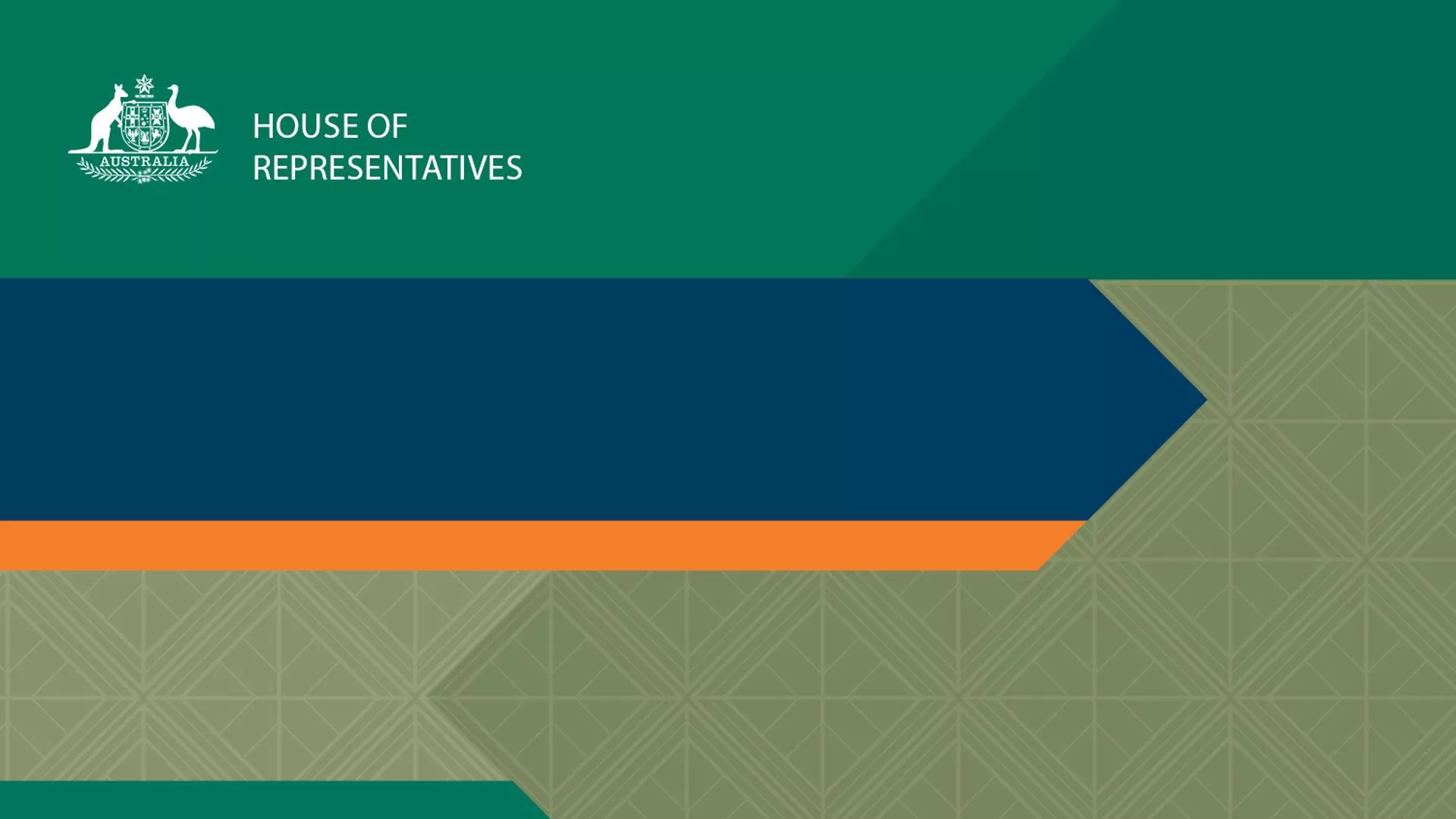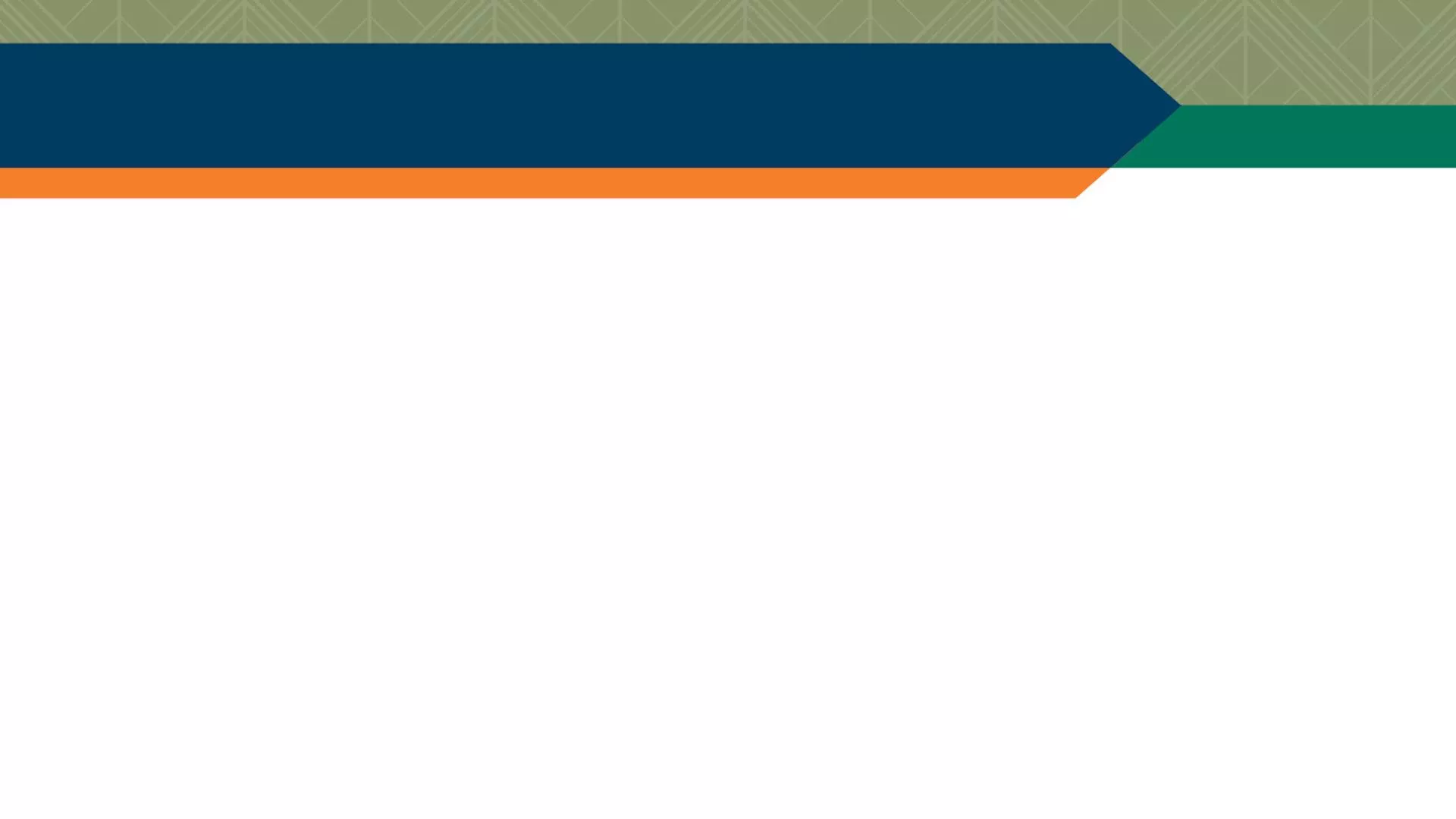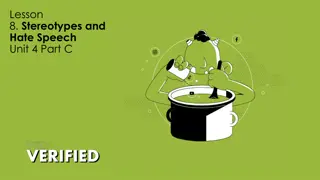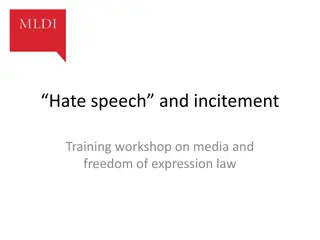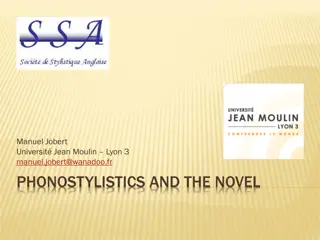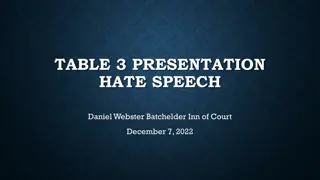Unparliamentary Language and Freedom of Speech: A Discussion on Tensions
The article delves into the debate surrounding unparliamentary language and its impact on freedom of speech within parliamentary settings. It explores historical context, procedural laws, types of unparliamentary language, practical examples, and instances of personal reflections, allegations of corruption, and lying. The content also highlights the importance of maintaining decorum while allowing for robust discourse in parliamentary debates.
Download Presentation

Please find below an Image/Link to download the presentation.
The content on the website is provided AS IS for your information and personal use only. It may not be sold, licensed, or shared on other websites without obtaining consent from the author. Download presentation by click this link. If you encounter any issues during the download, it is possible that the publisher has removed the file from their server.
E N D
Presentation Transcript
Its a bit unfair on the bin chickens: Tensions between unparliamentary language and freedom of speech Ophelia Tynan, Department of the House of Representatives
Unparliamentary language and conduct History: Designed to reduce gentlemanly violence between Members and encourage image of serious and quiet parliamentarian Relevant procedural law: House SOs 89-91, Senate SO 193(3) + Chair s rulings
Types of unparliamentary language There are four types of unparliamentary language that are recognised in the SOs of both/either House: Disrespectful ref to Monarch, Govr-G or State Govr Offensive words against another Member/Senator/House or member of Judiciary Imputations of improper motives and all personal reflections Reflections on a vote of the Senate (Senate- specific)
Types of unparliamentary language In practice, what does this look like? House examples of unparliamentary language in 2022-23: 68 instances ruled on by Chair/Speaker Two considered in detail by Speaker Dick One refusal to withdraw
Example: Contextual rulings Fifty shades of flex! (26 Oct 2022) 'Sit down, sunshine. (16 Feb 2023)
Examples: Personal reflections 'We've heard the blather and the noise from the bin chickens over there for the last 24 hours... (9 Nov 2022) 'It's not Foghorn Leghorn interjections from the peanut gallery, it's policy interventions which reduce power prices (14 Jun 2023) I'm sorry that it appears that you aren't able to read the very simple instructions... (21 Jun 2023)
Examples: Allegations of corruption and lying Lying: '...for the Prime Minister to somehow, in this tricky and slippery way that he's been conducting himself (15 Jun 2023) Corruption: 'The member for Hume was asked about this fakery and trickery today and he said it is all part of managing the budget. This is what happens when you put this ringleader for rorts in a key economic portfolio. (28 Mar 2023)
Examples: Inflammatory or offensive language 'You ****ing ugly big nosed slut. And you're a fat ****. Climate change is bullshit. (29 Nov 2023) ' Yet he was shafting him from behind by appointing himself as Treasurer... (14 Feb 2023)
Observations A review of all instances of unparliamentary language in 2022-23 to 26 June 2023 indicate: Men vastly outnumber women in using unparliamentary language Allegations of lying and personal reflections are still common and often ruled out of order Allegations of corruption are usually considered breaches of SOs, even if external investigations have made adverse findings.
Changes? House Standing Committee on Procedure Raising the Standard report: Recommendation 1 3.55 The Committee recommends that standing order 89 be amended as follows: 89 Offensive words A Member must not use offensive words, including words that are sexist, racist, homophobic and otherwise exclusionary or discriminatory, against: (a) either House of the Parliament or a Member of the Parliament; or (b) a member of the Judiciary.

 undefined
undefined